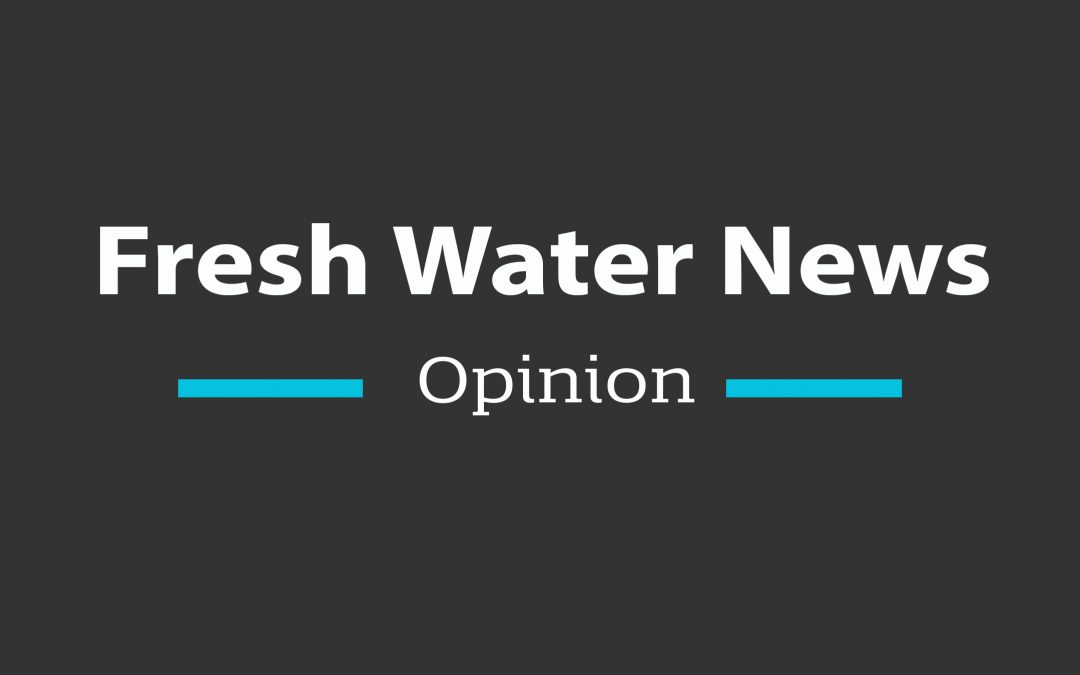For the past year, the Colorado Water Conservation Board (CWCB) has been undertaking an effort to politically determine a fair and equitable method to distribute the potential secondary economic impacts of any Demand Management Program, a policy commitment the CWCB terms “proportionality.” A Demand Management Program would create a 500,000 acre-foot drought “insurance” pool in Lake Powell and would protect the Upper Basin states against a “compact call” by Lower Basin states that would force major water use reductions in Upper Basin states.
A recent proposal by former Secretary of Interior Bruce Babbitt (“Here’s How to Save the Colorado River”) suggests that 80 percent of water use in the Colorado River Basin is for irrigated agriculture. The gist of Babbitt’s proposal is the creation of a federally funded Irrigation Reserve Program and using revenue from the basin’s federal hydropower dams to pay irrigators to fallow land and transfer needed water to the Powell insurance pool. As the CWCB considers the possible implementation of a Demand Management Program, his single-payer Irrigation Reserve Program proposal deserves consideration because it addresses how to pay for water use reductions from irrigated agriculture.
Babbitt’s opinion follows recent Northern Arizona University research that establishes the viability of agricultural fallowing as a solution to the basin’s water crisis. Fifty-five percent of Colorado River Basin water goes to cattle feed crops, including alfalfa and grass hay, haylage, and corn and sorghum silage. Thirty-two percent of all Western water use goes to cattle feed crop irrigation alone.
What has not yet been discussed is how to create incentives where all water rights holders, including agriculture, municipal and industrial users, can be paid a fair and equitable price for Colorado River water use reductions. We argue that an auction pricing mechanism provides the fairest and most equitable means to compensate these water rights holders in Colorado. Auctions would bring together the maximum number of water rights lessors to efficiently set prices for this scarce resource, helping to govern these competing demands. Auctions help determine where the demand is greatest, and therefore where the highest price is warranted. Markets are far better at setting fair and equitable prices than political processes. This is what markets do best.
CWCB would engage water rights holders who want to voluntarily participate by offering to auction how much they want to be paid and how much water they want to temporarily lease to CWCB. All water rights holders would be eligible to participate, based on historic consumptive use and other criteria fundamental to a water right. CWCB would be charged with balancing how the necessary amount of leased water would be obtained and delivered to the insurance pool, establishing enabling conditions to allow for transparent, competitive auctions, and ensuring that bids would be paid only if the physical water could actually be delivered as agreed.
The use of an auction to price water has significant advantages over centralized, top-down political processes that will end up picking winners and losers among agriculture, municipal and industrial uses. Auctions allow water rights holders to bid their fair market value, thereby promoting equity. Auctions can achieve the lowest total program costs, thereby protecting taxpayers or whoever pays the bill. (By filling bids for water in order from the lowest to the highest, this type of auction is called a reverse auction). Auctions will achieve lower transaction costs, thus encouraging water rights holders to participate, and auctions can be scaled up or down quickly in response to changing hydrological conditions.
In the Colorado River Basin, auctions would bring together water rights holders and voluntary trading, making them a fair and equitable means of establishing fair market price as part of a Demand Management Program.
Steven Ruddell is a natural resources economist who serves on the Board of Directors for the Animas La-Plata Water Conservancy District.
David Stiller, PhD, is a former Executive Director of the North Fork River Improvement Association and board member of the Fire Mountain Canal and Reservoir Company. His book, “First in Line: Water and Agriculture in Colorado and the West,” will be published in 2021.
Benjamin Ruddell, PhD, PE, is a professor at Northern Arizona University and co-editor of the book, “The Food-Energy-Water Nexus.”


 Print
Print